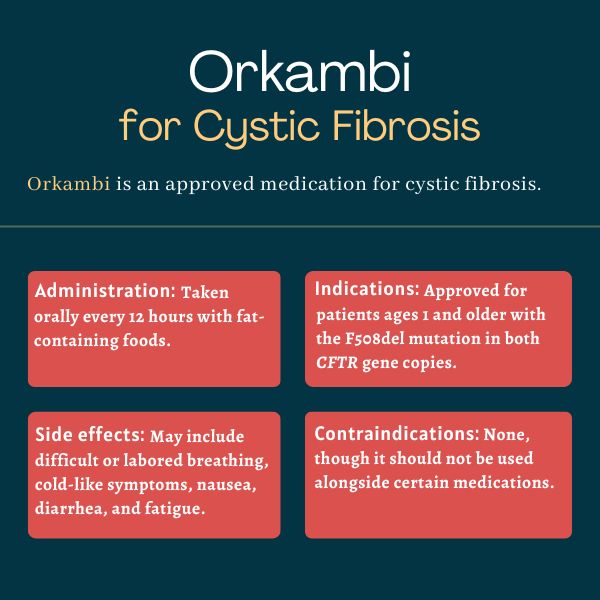 Discussion
Discussion
FAQs about Orkambi
There are no known interactions between Orkambi and alcohol. Patients are advised to speak with their healthcare team about whether it is safe to drink alcohol while on this medication.
Animal studies generally indicated no treatment-related adverse effects on the fetus or on offspring development with any of Orkambi’s active components at exposures around the maximum recommended human dose. However, data on pregnant patients are limited. It is not known whether this treatment passes to breast milk. Patients should inform their healthcare team if they are pregnant or plan to become pregnant, are breastfeeding, or plan to do so.
Neither hair loss nor weight gain have been reported as a side effect of Orkambi. Patients who experience unanticipated effects after starting a new cystic fibrosis therapy are advised to talk to their healthcare provider.
In the two Phase 3 trials that supported Orkambi’s initial approval, lung function improvements were seen as early as day 15. These gains were sustained through treatment conclusion at 24 weeks (six months). However, each person may respond differently to treatment, thus patients are advised to discuss with their healthcare team how Orkambi can help in their particular case.
The U.S. Food and Drug Administration first approved Orkambi in 2015 for cystic fibrosis patients ages 12 and older with two copies of the F508del mutation. This has since been expanded, and Orkambi is now cleared for use in children starting at age 1.
Related Articles
 Fact-checked by
Fact-checked by 




